
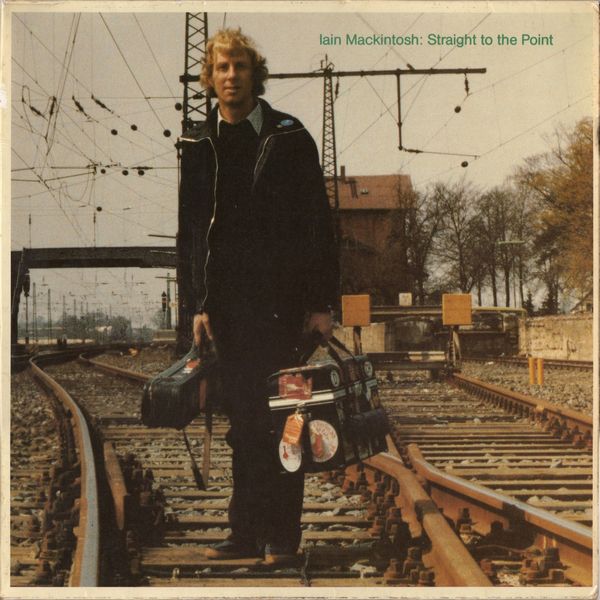 |
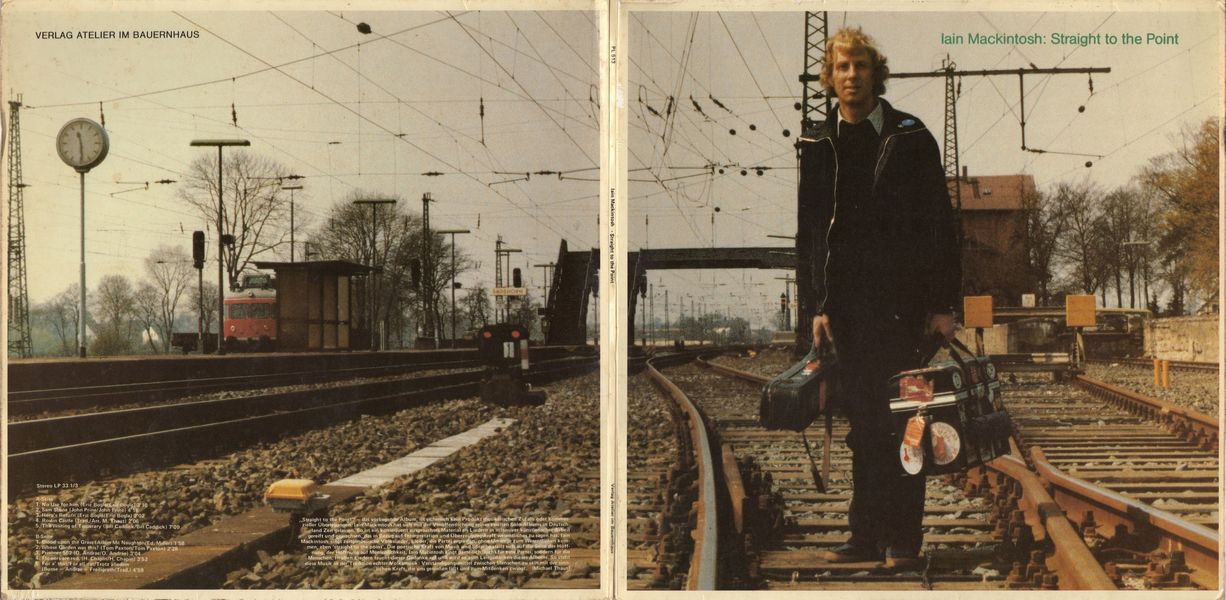
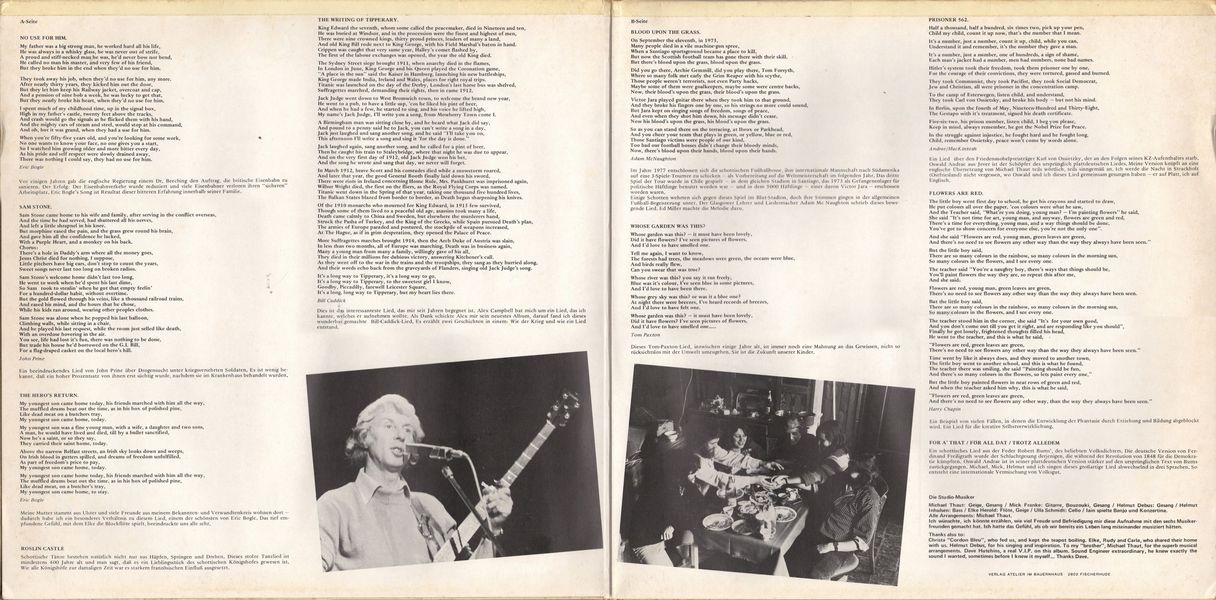
|
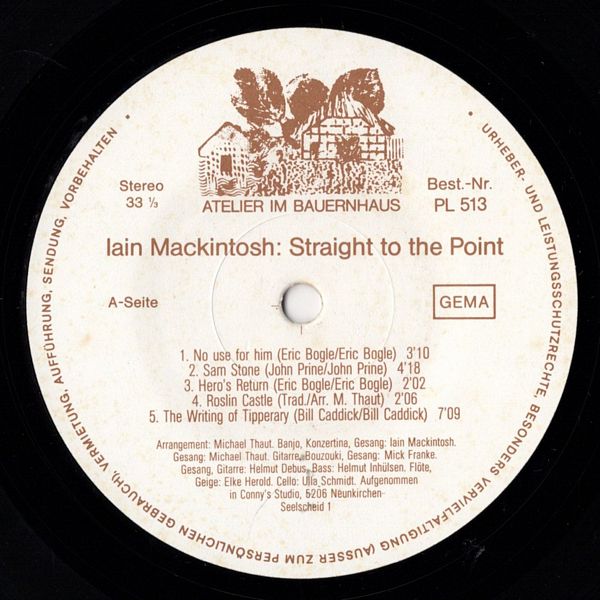
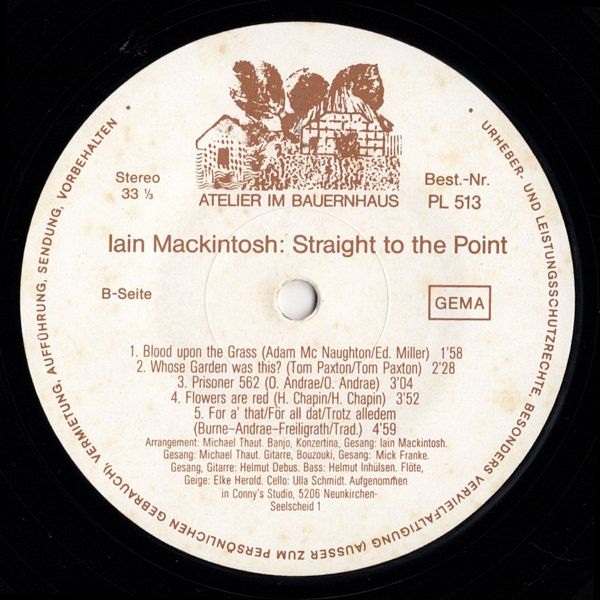 |
Sleeve Notes
"Straight to the Point" — this album is certainly not a product of musical coincidence or commercial considerations. Iain Mackintosh took his time with the release of his second solo album in Germany. A consistently selected material of songs has matured and grown in intensive artistic work, which has important things to say in terms of interpretation and persuasiveness. Iain Mackintosh sings contemporary folk songs, songs that take sides, get straight to the point, straight to the point. The poetic power of music and language takes the side of hope, the hope of humanity. Iain Macintosh sings partisan, not for a party, but for the people. This thought appears in all the songs and thus becomes the central theme of this album. This is how this music stands in the tradition of real folk music: to be a means of understanding between people with the sensual power that lets us enjoy and compels us to think.
Michael Thaut
No Use For Him — A few years ago the English government gave a Dr. Beeching was commissioned to rehabilitate the British railway. The success: Rail traffic was reduced and many railway workers lost their "secure" jobs. Eric Bogle's song is the result of this bitter experience within his family.
Sam Stone — An impressive song by John Prine about drug addiction among disabled soldiers. It is little known that a high percentage of them did not become addicted until after hospital treatment.
The Hero's Return — My mother comes from Ulster and many friends from my circle of acquaintances and relatives live there, so I have a special relationship with this song, one of Eric Bogle's most beautiful songs. We were all very impressed by the deeply felt feeling with which Elke plays the recorder.
Roslin Castle — Scottish dances are of course not just about hopping, jumping and turning. This proud dance song is at least 400 years old and is said to have been a favorite of the Scottish royal court. Like all royal courts at the time, it was exposed to strong French influence.
The Writing Of Tipperary — This is the most interesting song I've come across in years. Alex Campbell asked me for a song I knew that he wanted to record. As a thank you, Alex sent me his latest album, on which I found this wonderfully made Bill Caddick song. It tells two stories in one: how the war came about and how a song came about.
Blood Upon The Grass — In 1977 the Scottish football bosses decided to send their international team to South America on a 3-game tour in preparation for the World Cup the following year. The third game of the tour was played in Chile in the same stadium in Santiago that had been used as a prison camp for political prisoners in 1973 and in which 5000 prisoners — one of them Victor Jara — had been shot.
Some Scots defended themselves against this game in the Blood Stadium, but their voices were drowned in the general enthusiasm for football. Glaswegian teacher and songwriter Adam McNaughton wrote this moving song. Ed Miller added the melody.
Whose Garden What This? — This Tom Paxton song, now a few years old, is still a reminder to our conscience not to be so ruthless with the environment. It is the future of our children.
Prisoner 562 — A song about the Nobel Peace Prize laureate Karl von Ossietzky, who died as a result of his stay in a concentration camp. Oswald Andrae from Jever is the creator of the originally Low German song. My version is based on an English translation by Michael Thaut, partly literally, partly analogously. I will not forget the night in Strackholt (East Friesland), where Oswald and I sang this song together — he in Platt (Plattdeutsch), I in English.
Flowers Are Red — One example of many cases in which the development of the imagination is blocked by upbringing and education. A song for creative self-realization.
For A 'That, For All Dat & Despite Everything — A Scottish song penned by Robert Burns, the popular folk poet. Ferdinand Freiligrath's German version became the battle song of those who fought for democracy during the revolution of 1848. In his Low German version, Oswald Andrae went back to the original text by Burns. Michael, Mick, Helmut and I sing this great song alternately in three languages. This creates an international mix of folk goods.
Above translated via google translate.